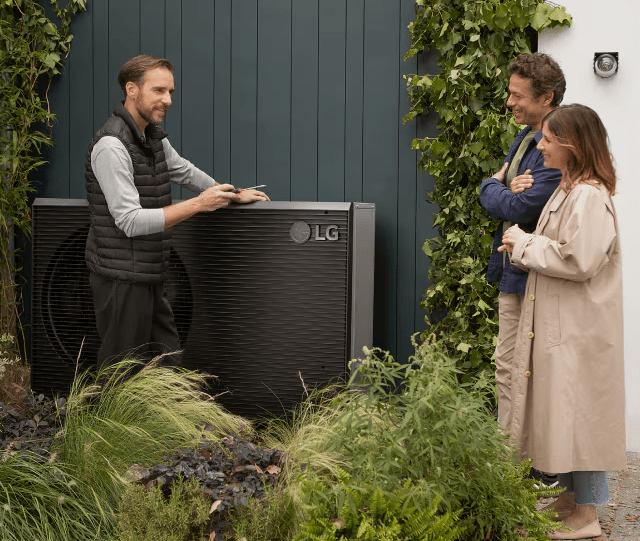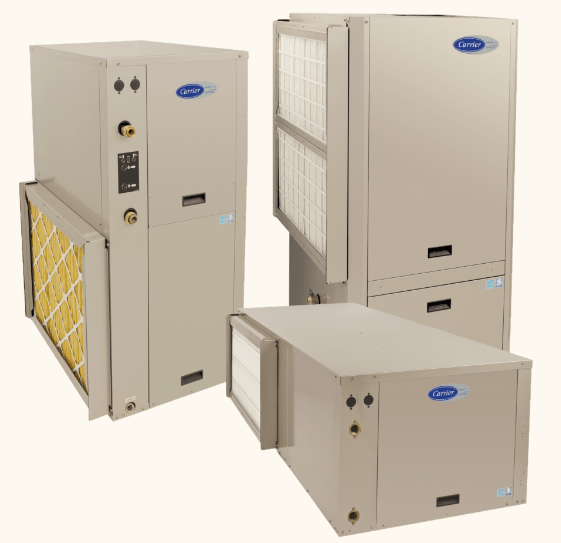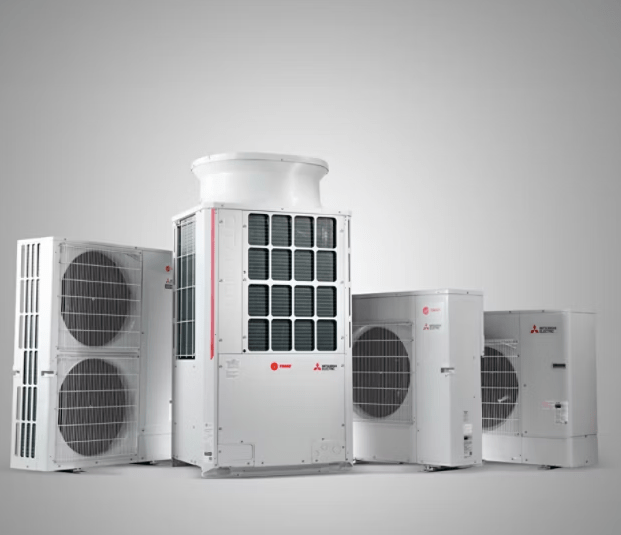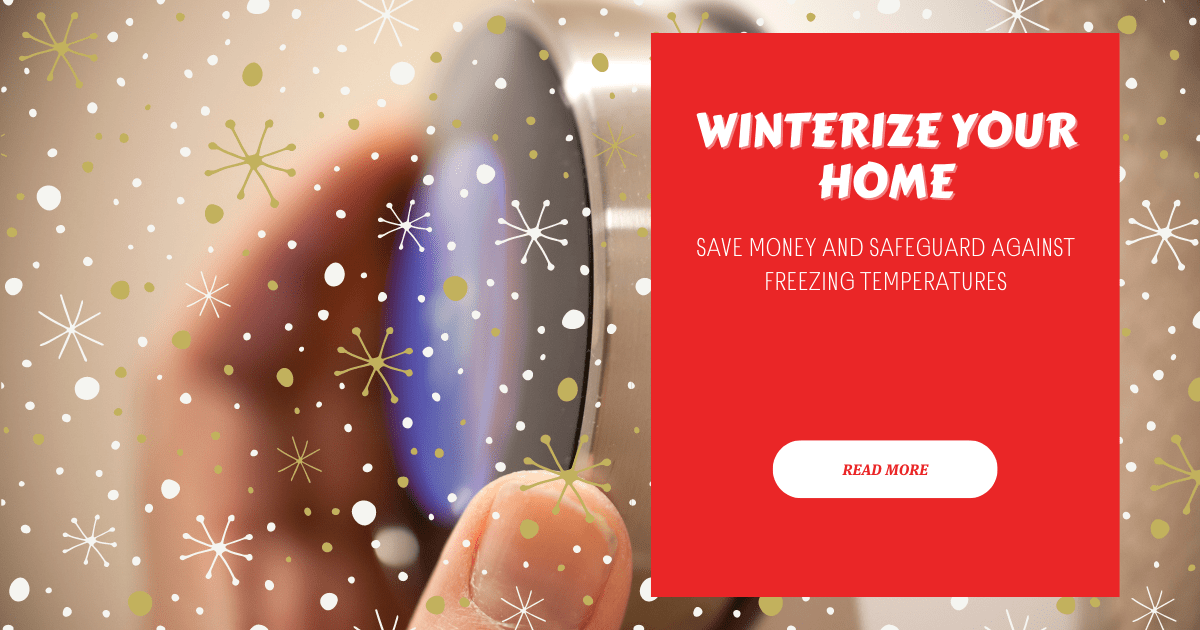Switching to an electric heat pump can transform how you heat and cool your home. As energy costs rise and environmental concerns grow, more homeowners are exploring this efficient alternative.
Electric heat pumps not only reduce your carbon footprint but also have the potential to offer significant savings on energy bills. They’re versatile, providing both heating and cooling, making them a year-round solution. If you’ve been considering a change, now might be the perfect time to consider diving into the world of electric heat pump conversion. Keep in mind, it’s important for an HVAC professional to assess whether or not your particular home or business is a good candidate for an electric heat pump. At Larry Cook Heating and Cooling, we offer free customized estimates and would be able to give you an honest answer on whether or not an electronic heat pump is a good option for you.
What Is An Electric Heat Pump?
An electric heat pump is a highly efficient system for heating and cooling homes. Instead of burning fuel to create heat, it transfers existing heat from one place to another. This fundamental difference sets it apart from traditional electric heaters and gas heaters.
Here’s how it works: a heat pump extracts heat from the outside air, ground, or water and transfers it into your home. During warmer months, this process reverses to cool your home by moving heat outside. It’s all made possible by the refrigeration cycle, leveraging the same principles as your refrigerator but on a larger scale.

1.Air-Source Heat Pumps: These are the most common. They transfer heat to and from the outside air to provide both heating and cooling for your home. They’re cost-effective and relatively easy to install.

2. Ground-Source Heat Pumps: Also known as geothermal heat pumps, these systems use the earth’s consistent underground temperatures as a heat source. While more efficient, they’re also pricier to install due to the need for underground piping.

3. Ductless Mini-Split Systems: Ideal for homes without ductwork, these systems offer flexibility, allowing you to heat or cool specific areas. They consist of an outdoor unit and one or more indoor units.
Compared to traditional heating systems, electric heat pumps offer a more environmentally friendly and cost-effective solution. They can reduce your carbon footprint and lower energy bills. And what’s not to like about that?
Ever wondered how an electric heat pump stacks up against an electric heat pump furnace? While both use electricity, traditional furnaces generate heat through resistance heating, which is less efficient compared to the heat transfer process of a heat pump. This distinction is what makes electric heat pumps a great choice in terms of energy efficiency and operational cost.
Considering what the best electric heat pumps are for your home involves examining efficiency ratings, initial costs, and installation requirements. Brands like Trane, Mitsubishi, Lennox, and Carrier offer top-rated systems known for their reliability and performance.
Despite the initial installation cost, making the switch to an electric heat pump is an investment that has potential to pay off in the long run through energy savings and environmental impact. So, if you’re still debating between electric heater vs gas heater, or trying to decide the best option for your home, definitely consider the electric heat pump as it may be a versatile, efficient, and eco-friendly alternative for you.
Why Convert To An Electric Heat Pump?
Switching to an electric heat pump for your home has many benefits. This article delves into the environmental, energy-efficient, and air quality advantages of making the switch. According to CarbonWatch.com, replacing your electric furnace with a heat pump can save you $815 annually because heat pumps consume significantly less electricity than electric furnaces and baseboard heating systems. If you currently use fuel oil for heating, switching to a heat pump could reduce your yearly costs by approximately $950. Likewise, transitioning from propane to a heat pump may result in annual savings of about $855.
Environmental Benefits
Electric heat pumps don’t need fossil fuels for operation, which significantly cuts down carbon emissions. This makes them a greener choice compared to gas or oil furnaces. Using renewable energy sources, such as solar panels, can further reduce your carbon footprint. For instance, installing enough rooftop solar panels could help offset your electricity use, making home heating more eco-friendly.
Additionally, transitioning to an electric heat pump helps decrease reliance on non-renewable energy sources. This change promotes cleaner air. The more people opt for heat pumps, the greater the positive impact on our environment. So, if you’re looking to go green, an electric heat pump might be the right move.
Energy Efficiency
Modern cold-climate heat pumps offer high efficiency, often more than 300% compared to the 95% efficiency of gas furnaces. This means they can generate much more heat per unit of energy consumed. It’s the perfect example of getting more bang for your buck, energy-wise.
Electric heat pumps work by transferring existing heat instead of generating it through combustion, leading to significant energy savings. This can result in lower utility bills and a more cost-effective heating solution for your home. Plus, they’re versatile; many models provide both heating and cooling, making them a year-round solution. It’s worth noting that the best electric heat pumps are known for their superior energy efficiency.
Improved Air Quality
Electric heat pumps offer great air quality. They don’t produce combustion by-products, which reduces indoor air pollution. If you care about indoor air quality, this is a compelling reason to consider an electric heat pump. Without the need for burning fuels, there’s less risk of carbon monoxide and other harmful emissions.
In addition, their filtration systems can improve air quality by removing dust, pollen, and other allergens. This results in a healthier living environment, particularly beneficial for those with respiratory issues or allergies. Many of the best heat pumps on the market come equipped with advanced air filtration systems to ensure clean air circulation throughout your home.
Switching to an electric heat pump provides many benefits, from environmental improvements to energy efficiency and air quality.
Comparing Electric Heat Pumps To Other Heating Systems
An electric heat pump offers an efficient and eco-friendly way to heat and cool your home. Let’s compare it to other heating systems and see why it’s the superior choice.
Electric Heat Pump Vs. Gas Furnace
Electric heat pumps are generally more efficient than gas furnaces. Modern cold-climate heat pumps can achieve efficiencies over 300%, whereas gas furnaces cap at around 95%. This means heat pumps use less energy, saving you more on your utility bills.
When considering cost, the initial installation of an electric heat pump can be high, but this investment pays off with long-term energy savings. Gas prices fluctuate, especially in winter, impacting your budget unpredictably. On the other hand, heat pumps provide both heating and cooling, offering versatility year-round.
From an environmental standpoint, electric heat pumps don’t rely on fossil fuels, reducing carbon emissions. If paired with renewable energy, like solar panels, their impact on the environment becomes even smaller.
However, installing an electric heat pump requires professional services and can take 3-5 days, especially if you’re converting from a gas furnace. It’s crucial to plan this transition for the off-season to avoid any disruptions in your comfort.
Electric Heat Pump Vs. Oil Furnace
Comparing an electric heat pump to an oil furnace highlights several advantages. Firstly, electric heat pumps are more energy-efficient. Oil furnaces typically operate with efficiencies ranging from 80% to 90%, but heat pumps can reach over 300%. This significant difference results in lower energy consumption and cost savings.
Oil furnaces involve higher operational costs due to fluctuating oil prices and the need for regular delivery and storage maintenance. Electric heat pumps eliminate these concerns, offering a more stable and predictable expense.
In terms of environmental impact, oil furnaces produce harmful emissions, contributing to air pollution and increased carbon footprint. Electric heat pumps don’t produce direct emissions, making them a cleaner choice. When powered by renewable energy, their environmental benefits are even greater.
However, switching from an oil furnace to an electric heat pump requires professional installation, which could be a considerable investment. This process also takes time but ensures a more efficient and eco-friendly heating solution for your home in the long run.
Can Heat Pumps Save You Money on Energy Bills?
The answer is YES, heat pumps can help significantly reduce your energy bills, but the exact savings depend on several factors:
Home Characteristics: The size of your home and its energy efficiency impact how much you can save.
Local Climate: The climate in your area affects the heat pump’s performance and efficiency.
Current Heating System: Your existing system—whether it’s an electric furnace, baseboard heating, fuel oil, or propane—determines the potential savings.
Electricity Costs: The price of electricity from your supplier influences your overall savings.
Tips to Maximize Energy Savings
- Improve Home Insulation: Enhance your heat pump’s efficiency by adding insulation and other weatherization measures.
- Choose Certified Products: Opt for heat pumps that are certified by organizations like ENERGY STAR.
- Check Efficiency Ratings: Consider the system’s efficiency rating to ensure you’re getting the most savings possible.
The Conversion Process
Switching to an electric heat pump doesn’t happen overnight. Proper planning and execution are essential. Here’s a breakdown of what you can expect.
Initial Assessment and Planning
Start with the right-sizing process. Assess your home’s insulation and air sealing to ensure the heat pump will operate efficiently. Avoiding an undersized or oversized system is crucial; it affects performance and energy costs. Then, perform a Manual J calculation. This method, endorsed by the Air Conditioning Contractors of America (ACCA), helps determine heating and cooling loads based on your home’s specifics. Have this done by an HVAC engineer or a skilled installer. It helps in recommending the best system for your needs.
Improve home efficiency before installation. Upgrading insulation and sealing air leaks boosts the performance and cost-effectiveness of the heat pump. These steps ensure you get the most out of your investment.
Installation Steps
First, remove the old system. Safely disconnect and dispose of your existing furnace or heating system. Next, install the indoor unit. Place it in a space that allows good airflow and is easy to access for maintenance. Then, set up the outdoor unit. Position this unit away from high-traffic areas and ensure proper clearance around it for optimal performance.
After that, connect the refrigerant lines. These lines link the indoor and outdoor units and are vital for heat transfer. Finally, calibrate the system. Adjust settings for efficiency and comfort. Have a professional perform this to ensure accurate calibration and system longevity.
Costs Involved
Initial costs can be high. An electric heat pump installation, including labor, can have a wide range of expense (e.g., $3,000 and upward), depending on the type and size. However, consider the long-term savings. Unlike an electric heater vs. gas heater, heat pumps offer significant energy savings over time.
Factor in any upgrades. Improving insulation and air sealing can add to upfront costs. Yet, these improvements enhance overall efficiency, leading to lower energy bills. Lastly, explore incentives and rebates. Many regions offer financial incentives for switching to energy-efficient systems. These can significantly offset installation costs, making the transition more affordable.
Common Myths About Electric Heat Pumps
Myths about electric heat pumps often lead to misconceptions. Let’s debunk a few to clear the air.
Myth: Heat Pumps Are Inefficient In Cold Climates
This myth is not accurate. Modern cold-climate heat pumps are designed to operate efficiently, even in very cold temperatures. For instance, Mitsubishi’s Hyper Heat models maintain 100% efficiency down to 0º F and provide heat at 75% efficiency down to –13º F. Cold-climate heat pumps transfer heat from the atmosphere into your home, even in below-zero temperatures, making them highly efficient.
Myth: Heat Pumps Require A Backup System
This is generally not true for most homes. Modern cold-climate heat pumps are effective without a backup system, unless you live in an extremely cold area that rarely gets above freezing. These units, like the best electric heat pumps, handle heating needs independently, making a backup unnecessary in most regions.
Myth: Heat Pumps Are Too Expensive To Install
While the initial cost of electric heat pumps can be high, they provide long-term savings, but significant energy savings and available incentives offset these costs over time. When compared to traditional heating systems, the efficiency and cost-effectiveness of electric heat pumps make them a worthwhile investment.
Maintenance Tips For Electric Heat Pumps
Maintaining electric heat pumps ensures longevity and efficiency. I’ve encountered a few key strategies that keep these systems running smoothly.
Regular Inspection
Regularly inspect the unit, checking for dirt, debris, or ice build-up. Outdoor units can get clogged, affecting performance. Cleaning the area around the pump helps maintain optimal airflow.
Filter Replacement
Replace filters every 1-3 months. Dirty filters reduce efficiency and strain the system. Use high-quality filters compatible with your model for best results.
Professional Servicing
Schedule professional servicing at least twice per year. Technicians can identify and fix issues that aren’t apparent to the untrained eye. They also ensure refrigerant levels are correct, preventing compressor damage. See other HVAC Maintenance benefits here.
Monitor Thermostat Settings
Keep an eye on your thermostat. Setting it too high or too low forces the system to work harder, reducing its lifespan. Optimal settings maintain comfort without overburdening the heat pump.
Inspect Ductwork
Check ductwork for leaks or obstructions. Leaky ducts can waste energy, negating the efficiency of the electric heat pump. Seal any gaps and ensure ducts are well-insulated.
Clean Coils
Clean the coils annually. Dirty coils hinder heat transfer, forcing the system to use more energy. Use a soft brush or sponge to clean, avoiding damage to the delicate fins.
Fan Maintenance
Ensure the fan is working correctly. Listen for unusual noises or vibrations, which can indicate a problem. A malfunctioning fan reduces efficiency and can cause more significant issues if not addressed.
Outdoor Unit Care
Protect the outdoor unit from weather extremes. During winter, ensure it’s free from ice and snow. In summer, provide shade but ensure adequate airflow. These steps prevent overheating and improve performance.
Hybrid Systems
In dual fuel setups, maintaining the furnace component is equally important. Both systems should be in top condition for seamless switching between electric heat pump and traditional furnace.
Stay Informed
Stay informed about any recalls or software updates for your model. Manufacturers may release updates improving efficiency or addressing potential issues. Regularly checking their website ensures your system is up-to-date.
These tips not only extend the lifespan of your electric heat pump but also ensure it operates efficiently, saving money on energy bills and reducing your carbon footprint.
Make the Switch to a Heat Pump with a Professional HVAC Company
Switching to an electric heat pump has the potential to be a transformative experience, offering immediate benefits like reduced carbon emissions and noticeably lower energy bills. These versatile and efficient systems provide year-round comfort, making them an excellent choice for any homeowner.
The environmental and financial advantages make electric heat pumps an irresistible option. While the initial costs might seem daunting, the long-term savings and available incentives make the transition more affordable than you might think. Plus, the significant improvement in indoor air quality is a bonus you can’t overlook.
If you’re considering an upgrade, now is the perfect time to explore the benefits of electric heat pumps. They offer a reliable and eco-friendly solution for all your heating and cooling needs. Contact Larry Cook Heating and Cooling today for a free heat pump conversion consultation and discover how you can enhance your home’s comfort and efficiency.
Frequently Asked Questions
What are the main benefits of switching to an electric heat pump?
Switching to an electric heat pump offers several benefits, including reduced carbon emissions, lower energy bills, and improved air quality. Heat pumps are highly efficient, versatile for year-round use, and environmentally friendly as they don’t rely on fossil fuels.
How does an electric heat pump work?
An electric heat pump transfers heat from one place to another instead of generating it through combustion. Depending on the type (air-source, ground-source, or ductless mini-split), it extracts heat from the air, ground, or a nearby source to heat or cool your home.
Are electric heat pumps efficient in cold climates?
Yes, modern cold-climate heat pumps are designed to operate efficiently even in very low temperatures, often down to -13°F (-25°C). They are capable of achieving over 300% efficiency, making them a viable option for colder regions.
How much can I expect to save on energy bills with an electric heat pump?
While savings can vary, it’s possible that homeowners can reduce their energy bills by up to 50% when switching from less efficient systems like fuel oil, propane, or traditional electric heating. This often results in annual savings of several hundred dollars.
What is the initial cost of installing an electric heat pump?
The total cost to install an electric heat pump ranges greatly, depending on the type and size of the system. Although it’s a significant initial investment, long-term savings and incentive programs can help offset these costs.
How long does it take for an electric heat pump to pay for itself?
The payback period for an electric heat pump varies but generally falls between 8-12 years, depending on the initial cost, energy savings, and any available incentives or rebates.
How does an electric heat pump compare to a gas or oil furnace?
Electric heat pumps are generally more efficient, achieving efficiencies over 300%, compared to 95% for gas furnaces and 80-90% for oil furnaces. Although the initial installation cost may be higher, the long-term savings can make heat pumps more cost-effective.
What are the maintenance requirements for an electric heat pump?
Regular maintenance tasks include inspecting and replacing filters every 1-3 months, scheduling professional servicing, cleaning coils, checking ductwork, and maintaining the fan and outdoor unit. Proper maintenance ensures longevity and efficiency. It’s important to protect your investment.
Do electric heat pumps improve indoor air quality?
Yes, electric heat pumps improve indoor air quality by not producing combustion by-products and reducing indoor air pollution. Their advanced filtration systems also help remove allergens and other pollutants, promoting a healthier living environment.
Are there any incentives available for installing an electric heat pump?
Many government programs and utilities offer rebates and incentives for installing energy-efficient systems like electric heat pumps. These incentives can significantly reduce the upfront installation costs, making it more affordable to switch. Larry Cook Heating and Cooling is an Evergy-authorized contractor. Depending on your HVAC needs, you may be eligible for available rebates to Kansas and Missouri residential customers. Kansas customers can save up to $1,000!




